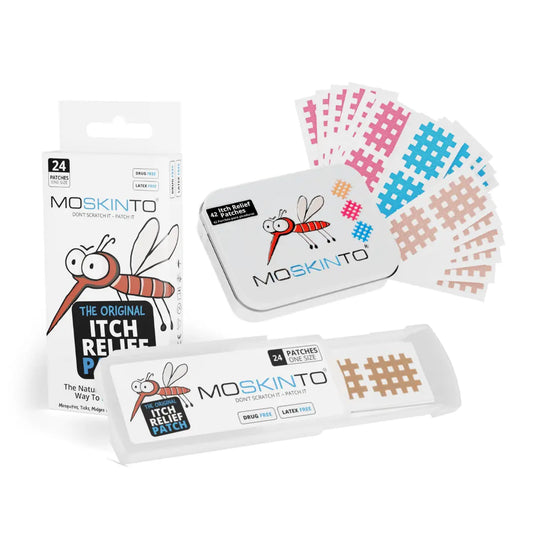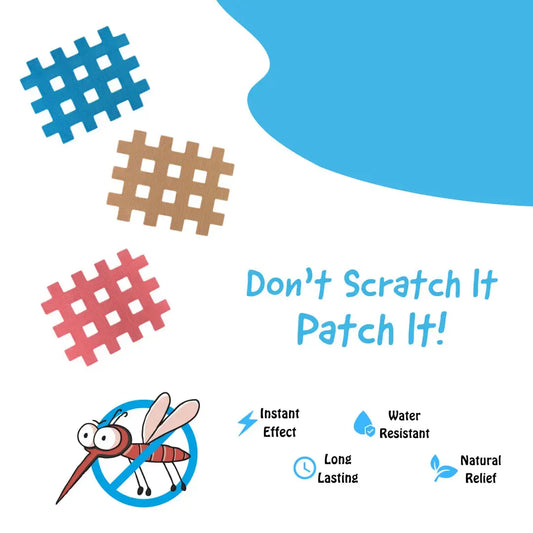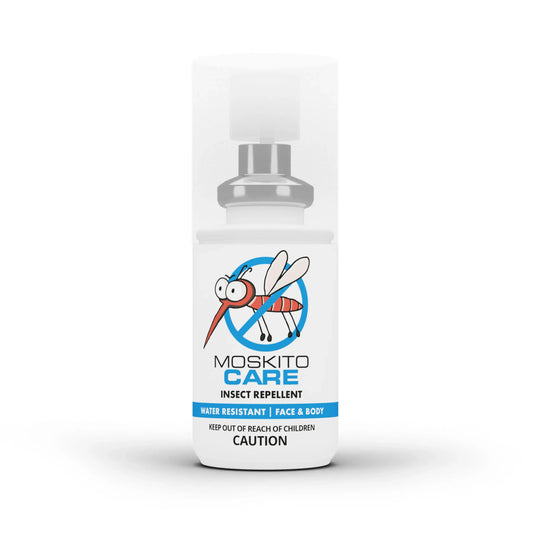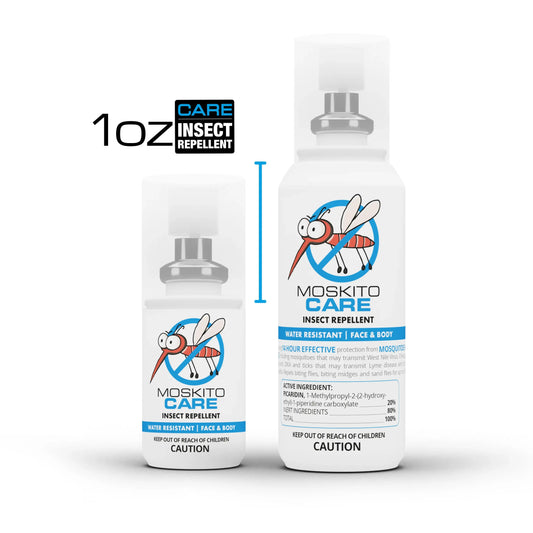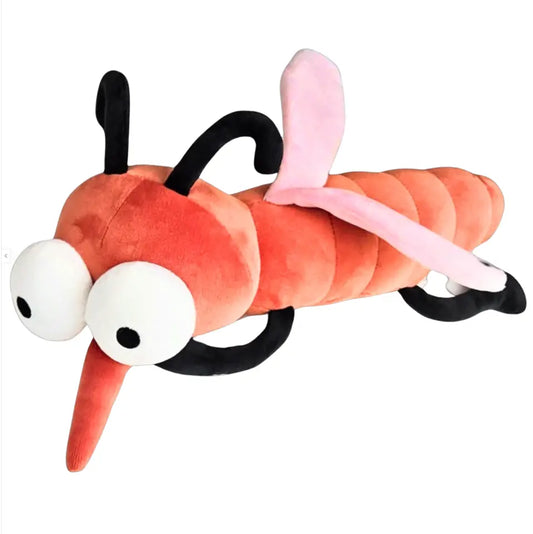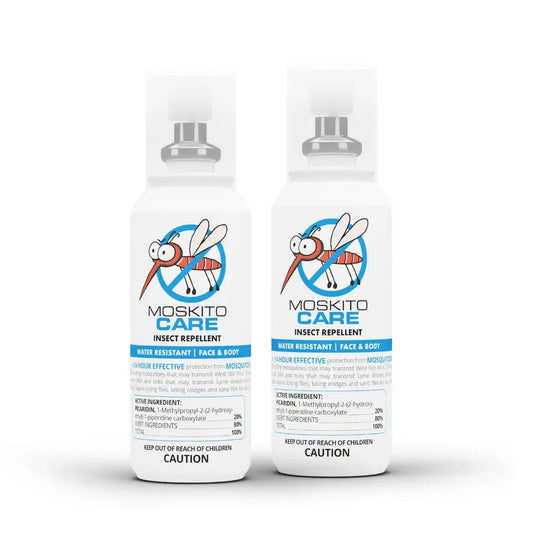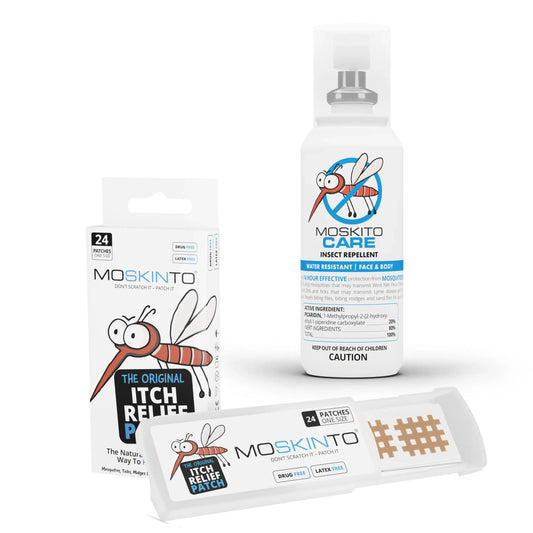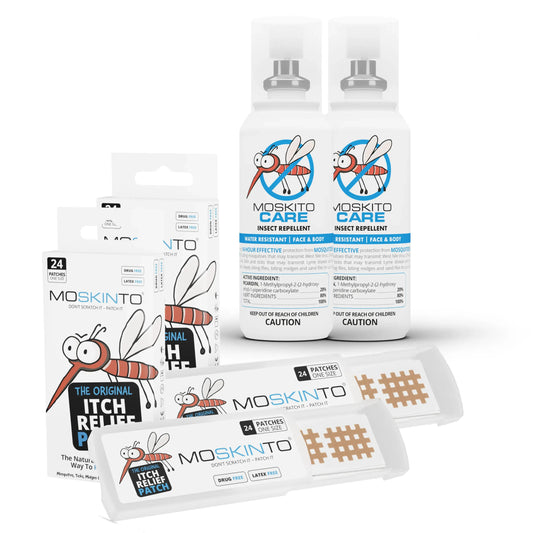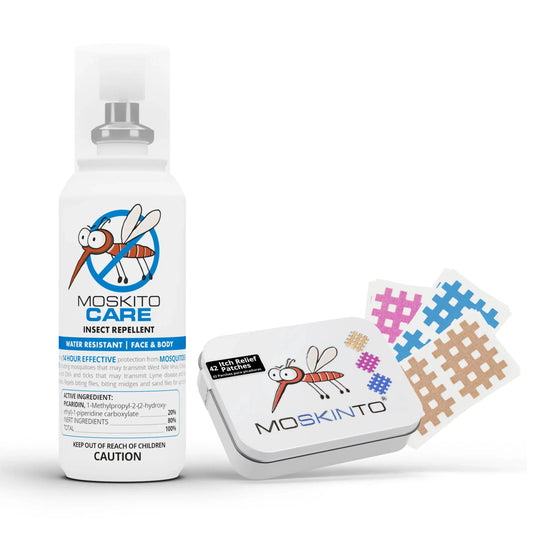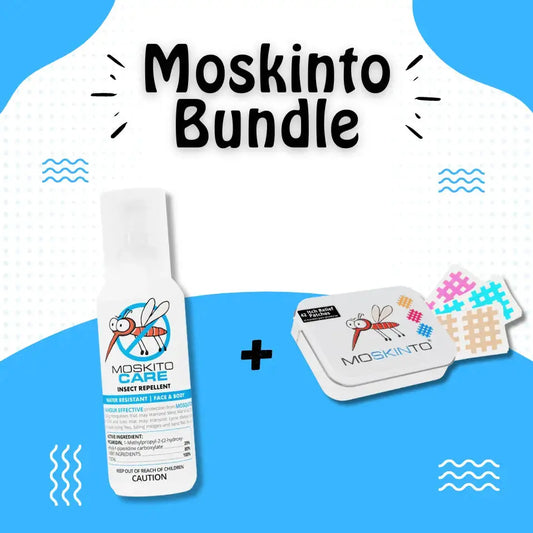Skeeter Syndrome: Understanding Mosquito Bites and Their Serious Reactions
Skeeter Syndrome is a term used to describe a severe allergic reaction to mosquito bites. While most people experience mild irritation and itchiness from mosquito bites, individuals with Skeeter Syndrome can have more intense and concerning symptoms. In this article, we'll delve into what Skeeter Syndrome is, its relationship to mosquito bites, and the symptoms commonly associated with this condition.
What is Skeeter Syndrome?
Skeeter Syndrome refers to an exaggerated immune response triggered by proteins in mosquito saliva. When a mosquito bites, it injects its saliva into the skin, which contains various substances that help facilitate feeding. In individuals with Skeeter Syndrome, their immune system overreacts, leading to excessive inflammation and allergic symptoms.
Symptoms and Reactions
Symptoms commonly associated with Skeeter Syndrome include severe itching, redness, swelling, and pain at the bite site. Additionally, affected individuals may experience larger-than-normal welts that are hot to the touch. In some cases, blistering, hives, and even fever can occur. These reactions can last for several days, causing discomfort and distress.
Understanding Mosquito Bites
When it comes to those pesky bug bites, mosquitoes tend to be the main culprit. These tiny insects have been buzzing around for millions of years, and they have developed quite the knack for finding their way to human skin. But why exactly do mosquitoes bite us?
Female mosquitoes, in particular, rely on blood meals to obtain the necessary nutrients for egg production. Their bites can be quite irritating for us humans and often cause red, itchy welts. But rest assured, these bites are typically harmless. It is important to note, however, that female mosquitoes are the ones that bite, as the males primarily feed on nectar.
So, what's behind that itchy aftermath of a mosquito bite? The answer lies in mosquito saliva.
Mosquito Saliva and Allergic Reactions
When a mosquito bites, it injects saliva into our skin to prevent blood clotting and numb the area, making its feeding easier. While this saliva contains various components and proteins, it also acts as a triggering agent for our immune system. This can lead to a mosquito-bite allergy, more commonly known as the skeeter syndrome.
For some individuals, exposure to mosquito saliva can cause allergic reactions. These reactions can manifest in the form of redness, swelling, and severe itchiness beyond the normal mosquito bite. In rare cases, individuals may experience a condition known as Skeeter syndrome.
Skeeter syndrome is an extreme allergic reaction to mosquito bites. It occurs when the proteins present in mosquito saliva cause a significant immune response. Unlike common mosquito bites, the symptoms of Skeeter Syndrome can be severe and last for several days.
To properly diagnose Skeeter Syndrome, a healthcare professional will typically evaluate the symptoms and consider the individual's medical history. In some cases, a skin test may be conducted to determine the specific allergens causing the reaction.
Understanding the role of mosquito saliva in allergic reactions is crucial for identifying and treating conditions like Skeeter syndrome. By being aware of the potential risks and symptoms, you can take necessary precautions to protect yourself and your loved ones from the discomfort that comes with mosquito bites.
Treating Skeeter Syndrome
- Self-Care at Home
If you are experiencing symptoms of Skeeter Syndrome, there are a few things you can do at home to manage the discomfort and promote healing:
- Relieve itching: Apply a cold compress or ice pack to the affected area to numb the itch. Taking an oatmeal bath or using calamine lotion can also help soothe the skin.
- Reduce swelling: Elevate the affected area to help reduce swelling. Avoid scratching the bite, as it can worsen the swelling and increase the risk of infection.
- Promote healing: Keep the bites clean and dry to prevent infection. Applying an antibiotic ointment can help in the healing process.
- Over-the-Counter Medications
If self-care methods alone are not providing enough relief, over-the-counter medications can be used to alleviate the symptoms of Skeeter Syndrome. Here are some options:
- Antihistamines: Taking over-the-counter antihistamines such as cetirizine or loratadine can help reduce itching and inflammation. Follow the recommended dosage instructions and consult a healthcare professional if you have any underlying medical conditions or are taking other medications.
- Topical creams: Applying a hydrocortisone cream or calamine lotion to the bites can help relieve itching and inflammation. Make sure to follow the instructions on the product label and avoid using them on broken skin.
It's important to read and follow the instructions provided with these medications and consult a healthcare professional for any concerns or questions.
- Seeking Medical Attention
While most cases of Skeeter Syndrome can be managed at home, there are situations when it is necessary to seek medical attention:
- Severe or persistent symptoms: If the symptoms worsen or persist despite self-care and over-the-counter treatments, it is recommended to consult a healthcare professional. They can assess the severity of the condition and provide appropriate medical advice.
- Prescription-strength treatments: In some cases, healthcare professionals may prescribe stronger topical or oral medications to alleviate the symptoms of Skeeter Syndrome.
Remember, always consult with a healthcare professional for proper diagnosis and treatment options.
Prevention and Long-Term Management
Mosquito Bite Prevention
Preventing mosquito bites is essential in managing Skeeter Syndrome. By following these preventive measures, you can significantly reduce your risk:
- Use insect repellents containing DEET, picaridin, or oil of lemon eucalyptus.
- Wear long-sleeved shirts, long pants, and socks when outdoors.
- Consider treating clothing and gear with permethrin, a highly effective insect repellent.
- Stay indoors during peak mosquito activity hours, typically dawn and dusk.
- Keep windows and doors screened to prevent mosquitoes from entering your home.
- Eliminate stagnant water sources around your property, such as flower pots, buckets, and birdbaths, to reduce breeding grounds.
Protecting children and individuals with high sensitivity to mosquito bites requires additional precautions:
- Dress children in lightweight long-sleeved shirts and pants to provide extra protection.
- Apply a child-friendly mosquito repellent on exposed skin surfaces.
- Ensure that children use mosquito nets while sleeping, especially in areas with high mosquito activity.
- Teach children to avoid scratching mosquito bites to prevent further irritation and potential infection.
Managing Skeeter Syndrome in the Long Run
Minimizing allergic reactions and avoiding potential complications associated with Skeeter Syndrome requires long-term approaches. Consider the following strategies:
- Avoid known mosquito-infested areas whenever possible.
- Nurture a clean and well-maintained living environment to discourage mosquito breeding.
- Install window and door screens and repair any damages promptly.
- Use mosquito repellents consistently, even during low mosquito activity periods.
Additionally, seeking follow-up care and regular check-ups with a healthcare professional is crucial for individuals prone to Skeeter Syndrome. These visits allow for professional assessment, monitoring, and management of any allergic reactions, as well as the adjustment of treatment plans if necessary. Remember, proactive care is key in maintaining a healthy and comfortable lifestyle.
Conclusion
Recap your knowledge about Skeeter Syndrome and empower yourself with effective strategies to treat and prevent it.
- Mosquito bites can cause various reactions on different individuals
- Skeeter Syndrome is an allergic reaction to mosquito saliva
- Common symptoms include severe swelling, redness, itchiness, and pain
- Diagnosis involves observing the symptoms and ruling out other conditions
- Treatments for Skeeter Syndrome focus on alleviating symptoms and reducing inflammation
- Prevention methods include mosquito bite prevention and long-term management
By understanding the causes and symptoms of Skeeter Syndrome, you can better protect yourself and your loved ones from its effects. Remember to use insect repellent, protect your skin by wearing long, loose clothing, and avoid areas with high mosquito activity. In case of an allergic reaction, consult a healthcare professional for proper diagnosis and treatment.
Stay informed, stay safe, and enjoy the outdoors mosquito-free!
Who Gets Skeeter Syndrome?
Skeeter syndrome is an allergic reaction to mosquito bites, which can affect individuals of all ages. However, it is more commonly observed among certain groups of people. Keep in mind the following considerations if you suspect you or someone close might have Skeeter syndrome:
Children and Infants
Young children and infants often experience more pronounced reactions to mosquito bites. Their immune systems are still developing, which can lead to more visible and sometimes more intense symptoms of Skeeter syndrome.
Individuals with Allergies
People who have a history of allergic reactions, such as those with asthma, eczema, or seasonal allergies, may be more susceptible to developing Skeeter syndrome. In these cases, their bodies may react more aggressively when responding to the proteins in mosquito saliva.
Travelers and New Residents
Individuals who have recently traveled to or moved to an area with mosquito populations different from those in their home region might experience Skeeter syndrome more acutely. Exposure to new types of mosquitoes can trigger the immune system to respond more significantly than it would to familiar species.
Frequent Outdoor Enthusiasts
Those who spend a lot of time outdoors, especially in mosquito-rich environments such as woods, wetlands, or near bodies of standing water, might be at greater risk simply due to increased exposure to mosquito bites. Frequent bites can sensitize the body, leading to a stronger allergic response over time.
If you notice unusually large or painful swellings after being bitten by mosquitoes, it is advisable to consult with a healthcare provider, especially if you or the affected individual fit into one of these groups. While Skeeter syndrome is not common, it can cause significant discomfort and, in rare cases, more severe reactions that warrant medical attention.
What mosquito causes skeeter syndrome?
"Skeeter syndrome" is an allergic reaction to mosquito bites characterized by swelling, redness, and sometimes fever and blistering at the site of the bite. This condition is not caused by any specific species of mosquito but rather by the body's allergic reaction to proteins in the saliva of any biting mosquito. When a mosquito bites, it injects saliva into the skin that prevents blood from clotting, allowing it to feed. In sensitive individuals, the immune system overreacts to these proteins, leading to the symptoms associated with Skeeter syndrome.
There are many species of mosquitoes, and any one of them can potentially cause this reaction in individuals with an allergy to mosquito saliva. However, the prevalence of Skeeter syndrome is not limited to or caused by any particular mosquito species. It's the allergic response of the individual that defines the syndrome, not the specific type of mosquito.
What causes skeeter syndrome?
Skeeter syndrome is an allergic reaction to the proteins in mosquito saliva. When a mosquito bites, it injects saliva into the skin, which contains anticoagulants and proteins. For most people, this results in a small, itchy red bump that may be annoying but is generally harmless. However, individuals with Skeeter syndrome have a more severe allergic reaction to these proteins.
This severe reaction can lead to symptoms such as:
- Large areas of swelling
- Redness
- Heat
- Pain at the site of the bite
- Sometimes low-grade fever
- Occasionally blistering
The reasons why some people develop Skeeter syndrome and others do not are related to their immune system's response to mosquito saliva proteins. It's essentially an overreaction by the body's immune system, which is why it is classified as a local allergic reaction. In some cases, the propensity for allergic reactions such as Skeeter syndrome can be hereditary.
The severity of the symptoms can vary widely from person to person. Children, individuals with compromised immune systems, and those who are not local to the area where they were bitten (and therefore have not developed any tolerance to the local mosquito saliva proteins) may be more likely to develop Skeeter syndrome.
Managing Skeeter syndrome typically involves avoiding mosquito bites through the use of repellents, wearing protective clothing, and controlling mosquitoes in the local environment. After a bite, treatment may include topical steroids to reduce inflammation and antihistamines to relieve itching. In cases of extreme allergic reactions, medical attention may be required.
Which mosquito causes skeeter syndrome?
"Skeeter syndrome" is an allergic reaction to the proteins in mosquito saliva. It is not caused by a specific species of mosquito but rather by an individual's allergic reaction to any mosquito's bite. People with skeeter syndrome experience more severe reactions to mosquito bites than the typical itching and mild swelling. Their symptoms might include larger areas of swelling, redness, heat, and occasionally blisters.
Most mosquito bites are caused by several common species that are found globally, such as the Aedes, Anopheles, and Culex mosquitoes. Each of these can cause skeeter syndrome in an individual who is allergic to the proteins in their saliva. It is the immune response of the person bitten, rather than the species of mosquito, that determines whether skeeter syndrome will develop.
What to take for skeeter syndrome?
"Skeeter Syndrome" is an allergy to mosquito saliva. It can cause a large area of swelling, soreness, and redness, in some cases accompanied by a low-grade fever and swollen lymph nodes. This condition is more likely an exaggerated reaction rather than an infection, and it's not particularly common.
Although it is best to consult with a healthcare provider to determine a personalized treatment plan, here are some general measures you could take to alleviate the symptoms of Skeeter Syndrome:
- Cold compresses or ice packs: These can reduce swelling and provide relief.
- Antihistamines: Over-the-counter (OTC) antihistamines such as cetirizine, diphenhydramine, or loratadine can help alleviate itching and swelling.
- Topical corticosteroids: Hydrocortisone cream or ointment can reduce inflammation and itching.
- Oral Corticosteroids: For severe reactions, doctors may prescribe oral corticosteroids like prednisone. However, this is usually for more severe cases and should be prescribed by a healthcare professional.
- Pain relievers: OTC pain relievers such as ibuprofen or acetaminophen may help alleviate pain associated with the swelling.
It's essential to avoid scratching the bites, as this can lead to skin damage or secondary infections. If the symptoms are particularly severe or persistent, or if they're accompanied by difficulty breathing or other signs of a systemic allergic reaction, seek medical attention promptly.
Prevention is an important step to avoid reactions to mosquito bites:
- Use insect repellents: Products containing DEET, picaridin, IR3535, or oil of lemon eucalyptus can be effective.
- Wear protective clothing: Long sleeves and pants can physically block mosquitoes from biting.
- Mosquito netting: When sleeping outdoors or in areas with high mosquito populations, sleeping under mosquito netting can help prevent bites.
Remember that individual reactions and appropriate treatments can vary greatly, and what works for one person may not work for another. Always seek professional medical advice if in doubt.
How do you get skeeter syndrome?
Skeeter syndrome is an allergic reaction to the saliva of mosquitoes. Unlike a normal mosquito bite which typically results in a small, itchy bump that resolves within a few days, skeeter syndrome is characterized by more severe reactions including larger areas of swelling, redness, and sometimes bruising or blistering at the site of the bite.
Individuals with skeeter syndrome have a heightened immune response to the proteins present in mosquito saliva. The reaction is similar to how some people may experience more severe reactions to bee stings or other insect bites due to an allergy to the insect's venom or saliva.
While anyone can potentially develop skeeter syndrome, it is more common in children, individuals with compromised immune systems, and those who have not been previously exposed to the mosquitoes from a particular area (and thus have not developed a tolerance to the saliva of those specific mosquitoes).
To clarify, you do not "get" skeeter syndrome in the sense that it is a condition you can catch, like a virus. Rather, it is an allergic response that some individuals have when bitten by mosquitoes. Whether someone develops skeeter syndrome depends on their immune system's sensitivity to mosquito saliva.
Preventing mosquito bites is the best way to avoid skeeter syndrome. This can include using insect repellent, wearing long sleeves and pants, using mosquito nets, and eliminating standing water where mosquitoes breed. If you know you have severe reactions to mosquito bites, it may also be advisable to carry an oral antihistamine or topical corticosteroids, as these can help manage symptoms if bitten. In cases of severe allergies, an epinephrine auto-injector (EpiPen) may be prescribed by a healthcare provider.
What mosquito causes skeeter syndrome?
"Skeeter syndrome" refers to an allergic reaction to mosquito bites, characterized by swelling, redness, and sometimes fever, blistering, and bruising due to inflammation associated with the bite. Skeeter syndrome is not caused by a specific type of mosquito; instead, it can occur from bites of any mosquito species to which an individual has an allergy or heightened sensitivity. The severity of the reaction varies from person to person and is dependent on their immune system's response to the proteins in the mosquito's saliva. Common mosquito species known to bite humans and potentially cause reactions include Aedes, Anopheles, and Culex species, among others.
What autoimmune disease causes skeeter syndrome?
Skeeter syndrome is not caused by an autoimmune disease. Rather, it is an allergic reaction to the proteins in mosquito saliva. When a mosquito bites, it injects saliva into the skin, which can trigger the immune system in certain individuals to react more strongly than usual, resulting in swelling, redness, itching, and pain around the site of the bite. This exaggerated allergic reaction is what is termed 'Skeeter syndrome'.
However, an individual's immune response, including the propensity to develop allergies, can be influenced by various factors, including autoimmune conditions. Autoimmune diseases can affect the immune system's function but are not direct causes of Skeeter syndrome. If someone with an autoimmune condition also has Skeeter syndrome, it would be a co-occurrence rather than a cause-and-effect relationship.
